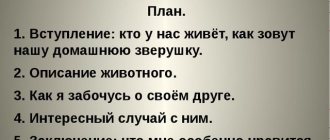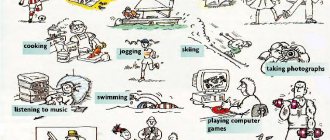A surgeon is a doctor who performs surgical interventions and specializes in the diagnosis and treatment of injuries, diseases, and pathological processes of various types. A surgeon can treat people (doctor) and animals (veterinarian); dentists and podiatrists also belong to a separate group. The profession is suitable for applicants who, from all school subjects, highlight chemistry, biology, mathematics and the Russian language. By the way, in 2021, the ProfGid career guidance center developed an accurate career guidance test. He himself will tell you which professions are suitable for you, and give an opinion about your personality type and intelligence.
Who is a surgeon?
Surgeon is a popular and highly sought-after profession. Surgeons in different countries of the world receive the highest salaries when compared with pediatricians, obstetricians-gynecologists, therapists and other representatives of medical specialties. They must have very developed fine motor skills, excellent vision and endurance, because the operation can last up to 18 hours.
There are general, oncological, laparoscopic, vascular, colorectal, thoracic, endocrine, traumatic surgery, transplantology and other sections - doctors can choose one or more. It is worth mentioning the directions and areas related to surgery:
- prosthetic surgery, which makes it possible to replace damaged or lost parts of the body with modern prosthetics;
- ophthalmic surgery aimed at restoring vision functions through surgery;
- neurosurgery necessary to treat the nervous system (also peripheral system, brain and spinal cord);
- surgery in the field of obstetrics and gynecology, necessary to resolve issues related to the female reproductive system: chronic and acquired diseases, pregnancy, childbirth and postpartum recovery;
- andrological and urological surgery, which involves surgical treatment of diseases of the male reproductive and genitourinary systems, respectively;
- plastic surgery aimed at restoring form and function, correcting organs and tissues.
There are maxillofacial and abdominal surgery - more than 15 areas and areas. A separate group should include veterinary surgery, which allows treating animals: CRH, MRS, birds, pets, reptiles and others. The activity of any surgeon is associated not only with operations, but also with early diagnosis, prevention, and conservative treatment.
April 20, 2015
6383 views
Veronika Kuzenkova Coach-consultant, corporate shaman, trainer, writer, dreamer. Creator of the “Dream Country” project, author of the book “How I Learned to Smile.” I support people on the threshold of significant changes, help them get out of creative crises and life dead ends.
- veronikakuzenkova.ru
- facebook.com/veronika.kuzenkova
- vk.com/veronika_kuzenkova
In 2015, we already found several wonderful stories about talented doctors, the development of new domestic drugs, and the construction of high-quality medical centers. Some have already been published, some are still in the works. I really like the story of Ilya Bozo because it gives me hope for the future of our medicine.
Ilya Bozo - maxillofacial surgeon, researcher at the Institute of Human Stem Cells, graduate student of the Department of Maxillofacial Surgery at Moscow State Medical University named after. A. I. Evdokimova. For more than five years, the main focus of his scientific research has been the development of innovative tissue-engineered and gene-activated materials intended for the treatment of patients with skeletal bone defects. In collaboration with specialists from these scientific teams, he published more than 100 scientific papers.
Ilya said “Life is interesting!” about how he went towards realizing his dream - to become a surgeon.
Now it’s hard to remember when I first had a dream. Probably at that very moment when my mother, who greeted my questions like “what is this, and why?..” with a slight smile, offered an accessible and understandable explanation of this term. I won’t say that in my young three or four years I fully realized and imbued with their meaning, the fundamental significance of “dreams” for a person who had just begun to explore the world. I also don’t remember what my very first dream was... although I’m sure it was hardly anything more than some kind of toy. Maybe that heavy green tank that fired plastic shells that I periodically carried with me to kindergarten. The burden was heavy, the road to the kindergarten was uphill, and my mother refused to carry it for me. But it was my choice. Achieving a dream is always a difficult process, but, as practice has shown, owning what has been achieved can also be difficult :).
Who said there has to be only one dream? Even in kindergarten, in addition to many long-forgotten and insignificant ones, I had a more serious dream, which ultimately determined my future life. I wanted to become a surgeon. Probably, in every normal family there comes a time when loving parents ask their child: “What do you want to become when you grow up?” I was four at the time, and that was my answer. I don’t know why I suddenly decided to become a surgeon. I don’t even know if I understood what this meant at that moment. But a dream is a dream.
For a long time, right up to high school, located in a town with a population of 10 thousand people, it was just a dream - an unconscious desire, not supported by a plan to achieve it. But just accepting such a dream left its mark on everything: despite the fact that all school subjects were easy for me, I really only liked natural sciences. Up until high school, surgery was just a dream, not a goal. Therefore, I did not try to delve deeply into this specialty. Although I managed to get my grandmother’s reference books on paramedics and outpatient surgery - old, Soviet ones, with yellowed pages and rusty stains... but I didn’t understand much there... I mostly looked at black and white pictures. And then, in the 11th grade, it was time to choose a future profession: so the dream became a goal. In my opinion, these concepts are different, although they are different sides of the same coin. It’s not for nothing that they say that “dreams come true” and “goals are achieved.” The first has some kind of passive component, the expectation of a miracle, while the second requires the choice of methods and means of carrying out planned actions.
Unfortunately, my modest family budget did not allow me to count on entering a civilian medical university, even if I had not missed the school gold medal at the last moment and entered “on a budget.” Therefore, the choice fell on the Military Medical Academy named after. S. M. Kirov is the only university of its kind in the country. Upon entering the Academy, each cadet, upon reaching 18 years of age, is required to enter into a contract for military service during training and for another 5 years after graduation: an excellent option for those seeking to devote themselves to service in the Army and a reasonable price for those for whom it is more important to simply become a doctor. Considering the more than two-century history of the Academy, its uniqueness, the highest authority and level of training, admission could not be easy. This was an obvious fact. And it became even more obvious after the open day my mother brought me to. If before that I “just wanted to do it,” then after that I passionately desired it. The dream, the goal, became to a certain extent an obsession.
On the same day, my mother bought two textbooks - on biology and chemistry - containing all the information necessary for a comprehensive answer to the questions of the entrance exams. These books were not subtle... I learned them from cover to cover. This was the only way to achieve my goal, so every day for three months I came home from school, had lunch and sat down to study the text in the amount of a pre-calculated number of pages per day. At the same time, he attended additional classes in the Russian language, ran and did pull-ups on the horizontal bar (physical education - fourth exam). Every Sunday I recited almost word for word to my mother everything I had learned over the previous six days, she listened patiently and checked. The strangest thing is that I liked it all. I liked the daily routine that I created for myself, I liked the feeling that everything was going according to plan.
After 2.5 months, my mother again took me to the Academy for trial testing. The results were good 4, 4, 5), but not sufficient. When I returned, I completed my preparations with redoubled efforts. As a result, half a month before the call for entrance examinations, I could quote any fragment of the text of both textbooks, indicating the page on which it was printed. Yes, you can call me a “nerd” :).
Waiting for the call was probably what frayed my nerves the most, because solving this part of the “equation” did not depend on me. And then, at the end of June, the call finally came: I was ordered to appear in Krasnoe Selo on July 7, 2005 - exactly a month after my birthday. I don't believe in omens and signs. More precisely, I believe only in positive ones, into which category I will include this date :).
I will not describe the period of admission to the Academy, the difficulties of learning, etc., especially since similar stories have already formed the basis of books that perfectly and thoroughly describe these periods (for example, “The Heirs of Pirogov”). I entered, did my best to become a good doctor, and graduated with honors. However, I don’t think this would have been possible without friends with similar goals and the Teacher I found within the walls of Alma Mater. It was Roman Vadimovich Deev, being the head of the course, who introduced me to scientific activities and promptly explained that the process of becoming a doctor is not limited to just “sorting out the dust from textbooks.” I respect him for his determination, firmness of conviction, ability to think critically, non-trivially and to see broader horizons. I am grateful to him for his selfless, but not devoid of practicality, help in achieving my goal.
I graduated from the Military Medical Academy in 2011 - this was the time of sensational reforms to “optimize the appearance of the Armed Forces.” So I again faced a choice: to become a surgeon in primary specialization and go to serve in the Army for several years in a position that was 90% different from clinical, or to leave the Army (the reform only welcomed termination of the contract at one’s own request) and, without wasting time , become an oral and maxillofacial surgeon. At first glance, both paths were good, but the second was more consistent with my dream, which arose in my youth and was later rethought as a goal. The choice was obvious, although the honors diploma somewhat complicated the process of dismissal from the RF Armed Forces.
It is important that it was my Teacher and his actions that formed the second path for me and led me to where I am now. My second Teacher was the head of the Department of Maxillofacial Surgery, who had the highest professionalism and extraordinary human qualities. He helped me acquire the fundamental knowledge, skills and abilities required by an oral and maxillofacial surgeon.
Can I say that I became an oral and maxillofacial surgeon solely through my own efforts? Of course not. They helped me. My mother, my Teachers, the support of my future wife, friends and colleagues helped. However, it was the fruits of my labor, commitment to the goal, a long string of planned and implemented steps that led me to these people and, ultimately, to achieving the goal.
Now, working in my specialty at a leading medical institution - the Federal Medical Biophysical Center named after. A.I. Burnazyan, I’m starting to wonder if my dream really came true? And what should be considered the criterion for achieving my goal? Receiving a certificate with the required inscription? Starting clinical practice, treating patients? Or a firm belief that I “can do everything” within the chosen specialty? The first and second have been achieved, but the third is hardly possible. But I will do my best.
The material was prepared by Ekaterina Fedotova.
Self-development #dreams
Features of the profession
Surgeons are available for children and adults; the age group of patients is determined during the selection of a narrow specialization. This profession is one of the most significant and difficult in the field of medicine, because surgeons expect many years of training and practice. They bear enormous responsibility, performing numerous long and short surgical procedures every day. However, operations (diagnostic, palliative, radical) are not the only responsibility of surgeons; let’s consider their activities in more detail:
- use of modern diagnostic methods: palpation, visual, biopsy, laboratory tests, ultrasound, fluoroscopy and others;
- advisory activities with the patient and his family members;
- studying the medical history and choosing the optimal treatment regimen, taking into account the age and individual characteristics of the patient;
- preparing the patient for surgery: nutrition, medications and other stages;
- postoperative rehabilitation and subsequent prevention of relapses.
“What a doctor should be like”
The essay should begin with the fact that a doctor is a person who spends his time on complete strangers, looks at their sometimes terrible problems and courageously tries to help.
Medicine has many branches and here you can choose many professions: dentist, paramedic, pediatrician, surgeon, ophthalmologist and many others.
I want to become a pediatrician. What qualities should a person who chooses such a profession have?
First of all, it is patience, attentiveness, kindness, sensitivity, sacrifice, and even a healthy sense of humor to make the baby laugh and relieve stress during the examination.
A real doctor, a doctor with a capital D, is a man of his craft, he gives all his strength and his whole life for the benefit of others. From youth to old age, he studies and improves, considers new treatment methods, carefully studies new diseases and explains to parents and children how to behave in order to get sick less.
Why did I make this choice? This is my dream - to save children and make them happy.
Pros and cons of the profession
pros
- A respected profession in the medical community.
- Opportunity to undergo retraining and obtain a narrower specialization.
- Surgeons save lives every day, so the profession has invaluable social significance.
- Salaries are quite high, especially for surgeons working in private clinics.
- In the future, you can get a vacancy in a clinic abroad.
- Young surgeons may receive low wages, but they gradually increase as they improve their skills.
- Rapid career growth is possible.
- Every surgeon can engage in scientific activities.
- Modern technologies significantly facilitate the work of a doctor, because today there are robot-assisted surgical systems “da Vinci”, various lasers, and laparoscopes.
Minuses
- Serious responsibility.
- The work is associated with nervous tension, fatigue, constant communication and high physical activity. The doctor cannot sit down for a second while performing an operation.
- High workload leaves a negative imprint on personal life, because surgeons often spend more time in the hospital than at home. Colleagues and patients call him at any time, violating his personal space.
- Long-term training, the minimum duration of which is 8 years.
Surgeon career
It's worth considering your career options before you become a surgeon. Most often, doctors of this profile develop in a horizontal plane. They earn a name for themselves, thanks to which they get a place with good conditions. It is also possible to transfer to the position of head of the surgical department. A surgeon, like his other colleagues, can count on the post of head of a medical institution. True, in this case he must possess not only the qualities of a good doctor, but also be a skilled administrator.
Where to study to become a surgeon?
Surgeons are trained at universities; it is impossible to master this profession through courses or colleges. Surgeons undergo multi-level training:
- training for 6 years in the specialty “General Medicine” (code: 05/31/01) or “Pediatrics” (code: 05/31/02), “Dentistry” (code: 05/31/03). The core subject of the Unified State Examination is chemistry, the compulsory subject is Russian, the choice of the university is physics, biology, mathematics or a foreign language;
- training for 2 years in residency.
Today you can enroll in residency in the following profiles:
- "Surgery",
- "Pediatric surgery"
- "Neurosurgery",
- "Plastic surgery",
- "Cardiovascular surgery"
- "Surgical dentistry"
- "Thoracic surgery"
- "Maxillofacial Surgery".
Please note that only people who have a diploma in the specialty “Dentistry” can enter the “Surgical Dentistry” residency. Oral and maxillofacial surgeons can undergo training in any of the above areas of specialty. For other residency profiles, you need a diploma in General Medicine or Pediatrics. As part of obtaining a narrower or additional specialization, you can undergo professional retraining, and every doctor is required to confirm his qualifications once every 5 years.
M.O.
In our rapidly developing world, when there is not enough time for anything, people, in order to do something, begin to need the services of some people who understand this matter. What interesting word can be used to describe the type of activity of a person who has some theoretical knowledge and skills acquired during special training? And what do you think? I think I know what you will answer. And don't say I'm wrong. After all, the answer is obvious. This is a profession.
Sometimes choosing a profession can be very difficult. Choosing a profession is a very important step on which your future as a whole depends. The profession should, firstly, please you, and secondly, provide you with a bright, happy and decent life. But how do you make your choice? Alas, everyone must decide for themselves.
As for me, I have already made my choice. My profession is a surgeon. For myself, as a child, I decided that I would become a surgeon, no matter what. After all, I really adore this profession. Let's first figure out who a surgeon is, what his responsibilities are, what he should be like, and everything else. We can talk about this as much as we want, but I will talk briefly. As you know, surgery originated before our era. In our era, one of the most famous surgeons is Hippocrates. To put it more clearly and briefly, a surgeon is a medical professional who has a higher medical education and treats diseases of various origins by performing operations on the human body. Such a person must have unique qualities: resistance to stress, good memory, attentiveness, confidence and perseverance. And, of course, he must be well educated.
But the most important thing in this profession is that you help people, provide them with some kind of assistance. True, unfortunately, it is not always possible to provide it, because our medicine is far from free. And besides, I understand that to become a surgeon you need to study hard. And for this I am diligently preparing to pass the Unified State Exam. And in the future I hope that my efforts will pay off. Well, that's actually all I wanted to say.
In conclusion, I want to say that it doesn’t matter what profession you have, the main thing is that it benefits people and that you like it yourself. After all, all professions are good in their own way, each with its own pros and cons. So take action to achieve your goal, and remember that only you can change your life. The goal is already close. Forward to the victory.
The author's spelling and punctuation have been preserved
Courses
MUIR
MUIR implements advanced training and professional retraining programs for surgeons and doctors with different specializations. The educational process is adapted for doctors living in different regions of the Russian Federation. Classes are conducted in full-time and correspondence format, and modern distance education methods are also used. After completing the course, the student receives a state-issued document giving the right to practice medicine.
Place of work
Surgeons work in private clinics, public outpatient clinics and clinics, as well as in:
- medical centers,
- dental offices,
- reproductive medicine centers,
- military field hospitals,
- emergency rooms,
- ambulance stations.
Often, surgeons are hired by medical centers operating at large companies, children's and educational institutions, manufacturing enterprises, and other organizations of various levels. A surgeon can conduct scientific activities, teach students at universities, colleges or training centers.
Education
To obtain a basic education, you need to enter a medical university at the Faculty of General Medicine. The choice of direction will happen much later, and the specialization will be assigned to the young doctor during residency. Regardless of the field, the student will have to study for 6 years at the institute, undergo an internship and residency. Sometimes, in order to become a specialist in a very limited area, you have to undergo additional specialized training.
When answering the question of what subjects need to be taken to become a surgeon, members of the admissions committee highlight such disciplines as the Russian language, social studies, biology, and chemistry. The last two are taught in in-depth form in medical universities, so if you have difficulties with the directions, you should prepare for possible problems.
Wage
The range of salaries in this area is huge; the final rate depends on a number of important factors:
- qualification category (II, I or higher) and specialization;
- region of operation, because surgeons in Moscow or St. Petersburg receive a more substantial salary than doctors in small cities;
- education received: university level, presence/absence of additional certificates;
- immediate place of work. Fees in private clinics are higher than in public clinics;
- number of successful operations;
- presence/absence of an academic degree.
The level of payment is influenced by experience, because a young surgeon can receive a salary of 20 thousand rubles, and the salary of a highly qualified specialist often exceeds 150 thousand rubles.









